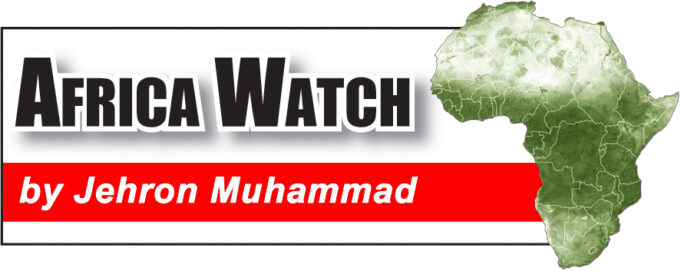This year’s recently concluded African Union Heads of State Summit left more questions than answers, including resolution for a substantive plan of action to resolve the increased and growing number of coup d’etats on the continent. This was followed by the kicking down the road—by a six-member panel of heads of state that was given a year to determine—the question of whether the “apartheid” state of Israel warrants AU “observer status.”
Why such a peripheral matter would warrant disruption of the continental body’s main topics of concern, and not reduced to the outer layers of the two-day event is anyone’s guess. The second four-year term AU Commission Chair Moussa Faki Mahamet is probably the reason.
The long list of AU Summit agenda items for this year’s summit—held Feb. 5-6 in Addis Ababa, Ethiopia—included the Covid-19 pandemic and climate change. However, limited time prevented any opportunity for any in-depth discussions.
Why not an expanded summit as a solution? Or maybe, as many reports suggest, the summit was more symbol this year than actual substance.
The AU Commissioner for Political Affairs, Peace and Security, Bankole Arned Deoye warned, “The Sahel must not be turned into a hotbed of un-constitutionalism.” He also noted an “intrinsic link between governance and weak security apparatus.”
Mali, Guinea, Sudan and Burkina Faso were all suspended from the AU over the last year after their governments were overthrown by the military. But the AU has been accused of an inconsistent response to coups in the region, notably not suspending Chad after a military council took power last April following the death of President Idriss Deby Itno.
Not to speak of the former one-year rotating 2019 AU chair, Egyptian President Abdel-Fattah el-Sissi, whose claim to political power came from his former occupation as Egyptian army chief general. In 2013, in a military-coup, el-Sissi removed the democratically elected president of Egypt, Mohamed Morsi, from power and suspended the Egyptian constitution of 2012.
The Assembly of Heads of State and Government of the AU elected the current AU Commission (AUC) under the continent-wide organization’s revamped structure. At the top of the commission’s hierarchy is the chairperson, a key position occupied since January 2017 by Chad’s former foreign minister, Moussa Faki Mahamat.
Faki Mahamat took over from Nkosazana Dlamini-Zuma following a hotly contested election, reported ISSAfrica.org. “Voting was postponed from July 2016 to January 2017 after none of the candidates managed to get a two-thirds majority. Faki Mahamat only joined the race in the second round and ultimately established himself as a consensual candidate for African heads of state and government.”
Here is where eyebrows were raised and where malfeasance or quid pro quo could have played a role.
The AU at the time was chaired by Chadian President Deby and Mahamat presided over the Executive Council of the AU in his position as foreign minister. In addition, Chad’s troop contributions to various peacekeeping operations and other military engagements were also of benefit.
The death of President Deby and the unchallenged “dynastic coup” by his son General Mahamat Idriss Deby, and Mahamat’s relationship with the inner politics of Chad, may have factored into why the AUC didn’t declare Chad as being taken over by a military coup.
Then the issue of Israel gaining observer status was tabled with AUC’s Mahamat, in the face of Amnesty International damning report titled: “Israel’s apartheid against Palestinians: a cruel system of domination and a crime against humanity.”
The Department of International Relations and Cooperation—South Africa, reported “The African Union Heads of State Summit, in a closed meeting this morning, decided to set up a committee that would deliberate on the question of Israel’s accreditation to the AU, granted by the AU Commission Chair, Moussa Faki Mahamet. The committee will consist of the heads of state of South Africa, Algeria, Nigeria, DRC, Rwanda, Cameroon and Senegal as the AU chair, in the meanwhile, while the committee does its work, Faki’s July 2021 decision to grant accreditation to Israel will be suspended.”
“Before the decision could be properly drafted and a resolution presented, Israel began lobbying individual member states, and putting pressure on many diplomats. As a result, this afternoon, in the last session, the matter was tabled for debate. The issue of the establishment of the committee was not in contention, but the issue of the suspension of the July 2021 decision was.”
From the beginning, the debate, chaired by Senegal’s president Mackey Sall, was shameful. Sall called, more than once, for the debate to end quickly because he wanted to watch football! Another country’s deputy-president made a similar appeal,” the article noted.
Follow @JehronMuhammad on Twitter













